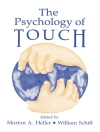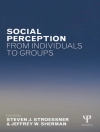Promoting a scholarly understanding of the psychology of social and cultural diversity in the early stages of 21st century, this volume encourages an in-depth appreciation of the value in diversity while directly addressing social intervention and policy implications.
- Offers, for the very first time, an integrated approach to the issues raised by increasingly complex representations of social identity
- Explores the psychological implications and applications of new forms of social and cultural diversity
- Includes research from a diverse range of scholars that covers a broad spectrum of sub-disciplines
- Discusses how the applications of multiculturalism and diversity research can encourage more positive intergroup relations
- Develops an in depth understanding and appreciation of the value of social and cultural diversity
Daftar Isi
Notes on Contributors ix
Series Preface xi
1 Introduction 1
Richard J. Crisp
Part I Social Identity 9
2 Social Identity Complexity and Acceptance of Diversity 11
Marilynn B. Brewer
3 Facilitating the Development and Integration of Multiple Social Identities: The Case of Immigrants in Québec 34
Catherine E. Amiot and Roxane de la Sablonnière
4 Costs and Benefits of Switching among Multiple Social Identities 62
Margaret Shih, Diana T. Sanchez, and Geoffrey C. Ho
Part II Culture 85
5 Multicultural Identity: What It Is and Why It Matters 87
Angela-Minh Tu D. Nguyen and Verónica Benet-Martínez
6 What I Know in My Mind and Where My Heart Belongs: Multicultural Identity Negotiation and its Cognitive Consequences 115
Carmit T. Tadmor, Ying-yi Hong, Chi-Yue Chiu, and Sun No
Part III Intergroup Attitudes 145
7 Multiculturalism and Tolerance: An Intergroup Perspective 147
Maykel Verkuyten
8 Diversity Experiences and Intergroup Attitudes 171
Christopher L. Aberson
Part IV Intergroup Relations 191
9 The Effects of Crossed Categorizations in Intergroup Interaction 193
Norman Miller, Marija Spanovic, and Douglas Stenstrom
10 Complexity of Superordinate Self-Categories and Ingroup Projection 224
Sven Waldzus
Part V Group Processes 255
11 The Categorization-Elaboration Model of Work Group Diversity: Wielding the Double-Edged Sword 257
Daan van Knippenberg and Wendy P. van Ginkel
12 Divided We Fall, or United We Stand?: How Identity Processes Affect Faultline Perceptions and the Functioning of Diverse Teams 281
Floor A. Rink and Karen A. Jehn
Part VI Interventions 297
13 Combined Effects of Intergroup Contact and Multiple Categorization: Consequences for Intergroup Attitudes in Diverse Social Contexts 299
Katharina Schmid and Miles Hewstone
14 The Application of Diversity-based Interventions to Policy and Practice 322
Lindsey Cameron and Rhiannon N. Turner
Index 353
Tentang Penulis
Richard J. Crisp is Professor of Psychology in the Centre for the Study of Group Processes at the University of Kent. He has received numerous awards including the British Psychological Society’s Spearman Medal (2006). He is joint editor of
Multiple Social Categorization (with Miles Hewstone, 2006) and
Essential Social Psychology (with Rhiannon Turner, 2007). He is associate editor of the
Journal of Experimental Social Psychology and in 2009 was elected an Academician of the Academy of Social Sciences.












